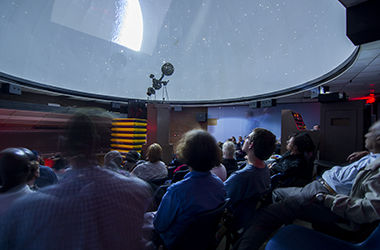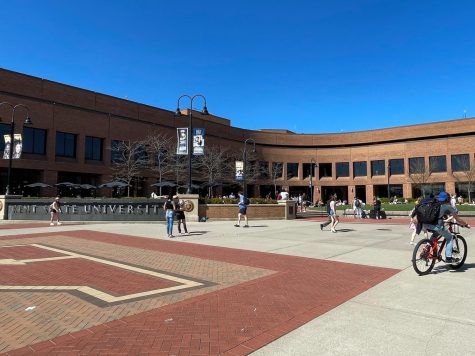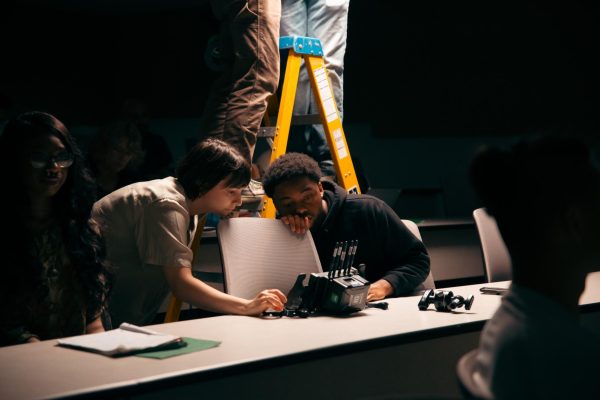Autumn night sky star of planetarium program

Brett Ellman leads a special program in the planetarium Friday, Sept. 26, 2014 describing the history of different constellations as well as the physical make-up of stars and galaxies.
September 29, 2014
All the stars in the autumn night sky can be seen perfectly Oct. 3 in the Kent State University Planetarium during the program “Introduction to the Autumn Sky.”
“It is the sky that you can see here, so it is the stars you can see in real life,” said Brett Ellman, director of the planetarium and presenter of the program. “We will look at different constellations, stars, galaxy and planets. Everything you can see without a telescope.”
The program, set to take place in the Smith Hall planetarium, is free and open to the public but not appropriate for children under age 6, according to a university press release.
The second part of the show will consist of the things we can’t see with the naked eye.
“We will talk about recent discoveries, comets, exploding stars, supernova and black holes, all the things that make astronomy exciting,” Ellman said.
While the constellations remain the same, the information given at the shows is rapidly changing.
“Every day I look at a website or two, like NASA, and I look at the newest things that are being discovered,” Ellman said. “Astronomy is moving faster than ever. I try to find the newest and best things to talk about to give a sense of the excitement astronomers feel every day.”
Professors who teach in the planetarium want students to receive exceptional grades, but that’s not the only thing they want.
John Barrick, an associate physics lecturer and self-proclaimed admirer of stars since his childhood, said he hopes to make the students more inquisitive and make it easier for them to learn about the sky.
Jacob Roark, a graduate physics student who presents shows to school students during the week, said he has goals for his audience as well.
“I want people to gain an appreciation for the world around them,” Roark said. “I want to enrich their love for science. I really like when the audience is receptive and asks good questions. When you have a question, the people respond to the show better.”
The night sky has always captivated humans, but we seem to be more distracted from it nowadays, Ellman said.
“We should all be looking up occasionally,” Ellman said. “People have their heads buried in their phones and they also forget we live in a bigger place and not our own little world.”
Contact Alyssa Schmitt at [email protected].























